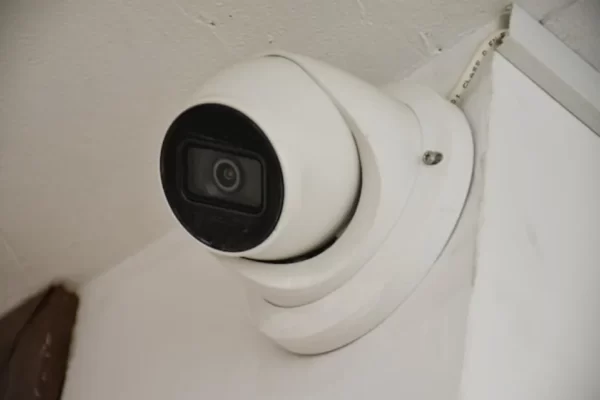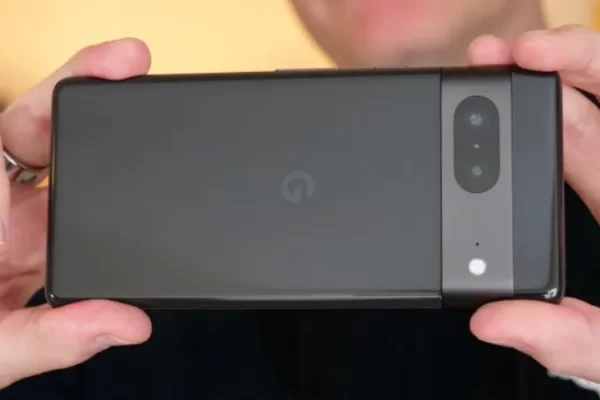There’s no such thing as a “hack-proof” camera. All of them could be broken into, and camera manufacturers have a history of being dishonest. The only “safe” move is not to install one.
Orwell’s Nineteen Eighty-Four is often used as an analogy for the dystopian hell we seem to be sliding towards. Installing surveillance systems in people’s homes was one of the book’s creepier aspects. Orwell isn’t the only thing you need to be concerned about if you’re installing hidden cameras in your home, though.
Many people have added indoor cameras to their smart homes, either to improve security or simply to keep an eye on their pets while they are away. The vulnerabilities that indoor cameras have have been reported recently if you’ve been following the news. Simply the tip of the iceberg, those problems. However, it turns out that indoor security cameras are much more trouble than they are worth. Outdoor security cameras have their place.
Table of Contents
They’re Vulnerable to Hackers
Customers can access their feeds remotely with the majority of home security systems. This is advantageous because it enables you to check on your house from any location with internet access. The disadvantage is that hackers who gain access to your Smart home network will now be able to remotely access your cameras. Although the camera manufacturer may also ask you to register with them, smart home networks typically revolve around something like a Google, Apple, or Amazon account. Additionally, it is a good reminder for you to take account security seriously. As a result, make sure 2FA is enabled and that your passwords are strong.
If a hacker gains access to your indoor security cameras, the repercussions could be disastrous. These can include recording you going to the bathroom at three in the morning without your pants on or collecting extensive data about your routines and plans. Theoretically, a would-be intruder could figure out when you leave the house, how long you typically spend away from home, and double check that you have indeed left before breaking in. Cameras used inside are generally not a good idea.
There’s a Trust Issue With Big Tech
This is a twofold problem, and it led to ReviewGeek removing both The cameras from Wyze and Eufy are on its list of suggested purchases. The Micro SD card of the camera contains videos that may be accessed by parties other than the user in 2019. This vulnerability was made known to Wyze in 2019. The business simply suggested customers upgrade their camera systems rather than warning them about the vulnerability. Eufy’s predicament is possibly worse. The company insisted that its products were secure and disconnected from the cloud. Eufy claimed that its own servers never come into contact with the data and that feeds and data could only be accessed locally through the service’s app or web interface.
This last statement is untrue, however, as users who choose to have their porch screenshots uploaded to the cloud and Amazon Web Services without any encryption are included in the doorbell alert’s thumbnail previews. If hackers have access to your camera’s serial number, a UNIX timestamp, and a Hex Key, they can also view the camera feed. The Verge has managed to demonstrate this a few times, but despite the evidence, eufy is still denying it is possible.
There is also the vast amount of data that tech companies already have about you and your personal life, on top of everything else. You should ask yourself if you are truly comfortable with the possibility of adding 24/7 footage of the inside of your home and whatever you do there to that lengthy list. If a hacker can access your cameras, there’s a good chance the manufacturer can as well.
Outdoor Cameras Are An Option
Consider choosing outdoor cameras if you’re really interested in using cameras for home security. There are many different types of outdoor cameras with various features, and they ought to offer the same security advantages as their indoor counterparts.
Outdoor cameras are built to withstand the particular challenges they face, as opposed to cameras that are kept indoors. So, if you purchase a high-quality camera, expect it to withstand adverse weather conditions and capture images clearly in all lighting conditions, including bright sunlight and pitch-black, moonless nights. Even products that double as cameras and have a number of other uses are available, such as Smart Doorbells.
Privacy is yet another benefit of an outdoor camera system. If someone manages to break into it, they’ll get a cool view of your porch, yard, or the street in front of your house. These are all places that shady characters could visit by showing up at your house or merely messing around on Google Street View. Your home’s interior design and who is doing what there are kept a secret.
Traditional Security Systems May Be More Efficient
If you use indoor cameras for security, you might be overpaying for a subpar setup. In some configurations, the camera is activated by movement, which starts recording and sends a notification to your device. Then, before deciding whether to call the police or take other action in the case of a home invasion, you can open the app on your phone and see what’s happening. Compared to earlier systems, this is incredibly inefficient.
The smartphone that is connected to your home security network must first be accessible, and you must be paying attention to it. It’s not something you can do all the time, as anyone who has ever slept through or otherwise missed a text or email knows. Even if you notice an alert, the intruder might have left by the time you look at a camera, and even if you do see them, calling the police is an additional step.
Traditional alarm systems detect an intruder, emit a loud noise that may deter the intruder, and if they are not deactivated within a predetermined amount of time, they automatically alert the authorities. They can be disabled by thieves with the right tools, so they’re not perfect. But by turning off the WiFi, smart home security systems can frequently be rendered useless or severely compromised.
While Wyze and eufy have primarily been impacted by recent issues, hackers can attack any camera. Although security will always advance, as history has shown, hackers will always be one step ahead.
The best defense against having an indoor camera hacked and a bad actor watching your daily activities is to simply not have one. With indoor cameras, the risk, no matter how small, simply does not outweigh the advantages.
Read More: Are There Cameras In Movie Theaters?
Source: reviewgeek





